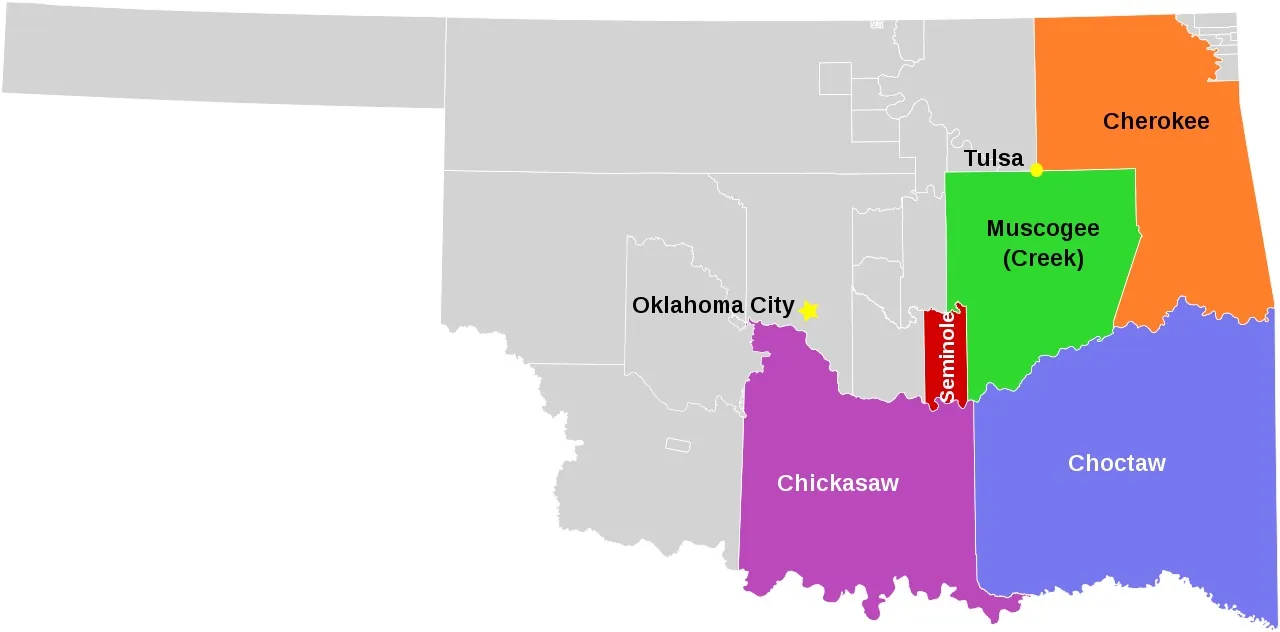Emergency Docket
Court puts relief for Oklahoma inmate on hold amid uncertainty about scope of McGirt
on May 26, 2021 at 3:29 pm

The Supreme Court on Wednesday granted a request by Oklahoma to allow the state to retain custody of a death-row inmate while the court considers whether to clarify the implications of last year’s decision holding that Oklahoma lacks jurisdiction over certain crimes committed on land reserved for Native Americans.
The inmate, Shaun Bosse, was convicted and sentenced to death for the 2010 murders of Katrina Griffin and her two young children. He now claims that his conviction is invalid under McGirt v. Oklahoma because Griffin and her children were members of the Chickasaw Nation and the crime occurred within the boundaries of a Native American reservation. An Oklahoma appeals court agreed and threw out his conviction and sentence. If that ruling is allowed to take effect, Oklahoma will have to hand Bosse over to federal authorities (who have filed separate criminal charges against him). But the Supreme Court – over the objections of the court’s three liberal justices – granted the state’s request to put the Oklahoma court’s ruling on hold while the state files a petition asking the justices to take up the case on the merits.
The case concerns the scope of last year’s 5-4 ruling in McGirt, in which Justice Ruth Bader Ginsburg and the other liberal justices joined a decision by Justice Neil Gorsuch holding that a large portion of eastern Oklahoma, which was reserved for the Creek Nation in the 19th century, remains a reservation for purposes of a federal law that gives the federal government sole power to try certain major crimes committed by “any Indian” in “Indian country.” In the wake of McGirt, many inmates who were convicted in Oklahoma state court began to argue that their convictions were invalid on the basis that they, or their victims, were Native Americans. In Bosse’s case, the Oklahoma Court of Criminal Appeals concluded that, even though Bosse himself is not a Native American, the state lacked jurisdiction to prosecute him under the reasoning of McGirt.
Oklahoma came to the Supreme Court on an emergency basis last month, asking the justices to block the state court’s ruling and weigh in on whether states have the authority to prosecute crimes committed on Native American land by non-Native Americans. Oklahoma told the justices that this question is “now one of enormous importance to the State and to Indian victims” because of the number of people who live in the areas now recognized as reservations after McGirt. Allowing states to prosecute these kinds of cases, Oklahoma added, will provide “additional assurance that tribal members who are victims of crimes will receive justice, either from the federal government, state government, or both. It minimizes the chances abusers and murderers of Indians will escape punishment and maximizes the protection from violence perpetrated on Native Americans.”
Bosse urged the justices to stay out of the dispute. Oklahoma’s argument that states should also be able to prosecute crimes against Native Americans runs contrary to over a century of the Supreme Court’s rulings, he argued. Oklahoma also did not show that it would be permanently harmed if the state court’s ruling were left in place, Bosse continued: All that would happen is that Bosse would be placed in federal custody for federal prosecution. If the Supreme Court eventually grants review of the case on the merits and reverses the state court’s ruling, Bosse continued, his conviction and death sentence would be reinstated. And although Oklahoma “also invokes concerns about other cases where, unlike here, the United States may not detain or prosecute,” Bosse told the justices, “if that is the worry, the State should seek stays there.”
Acting U.S. Solicitor General Elizabeth Prelogar took the relatively unusual step of filing, without being asked by the justices, a “friend of the court” brief in which she agreed with Bosse that Oklahoma lacks the power to try him for offenses against Native Americans. There is “no basis,” Prelogar wrote, “to reverse the long-held understanding of the division of federal, state, and tribal jurisdiction in Indian country.” “To the contrary,” she concluded, “this Court has reaffirmed the established rule that a State does not have jurisdiction over offenses by non-Indians against Indians in Indian country.”
In a brief unsigned order on Wednesday morning, the court put the state court’s ruling on hold until Oklahoma can file its petition for review. If that petition is denied, the court indicated, then the state court’s ruling can go into effect; if the petition is granted, then the ruling will remain on hold until the Supreme Court issues its decision.
The court’s three liberal justices – Stephen Breyer, Sonia Sotomayor and Elena Kagan – all indicated that they would have denied Oklahoma’s request, but they did not provide any explanation for their objection. The other justices did not publicly record their votes, although Oklahoma needed at least five votes to stay the state court’s decision.
This post was originally published at Howe on the Court.


